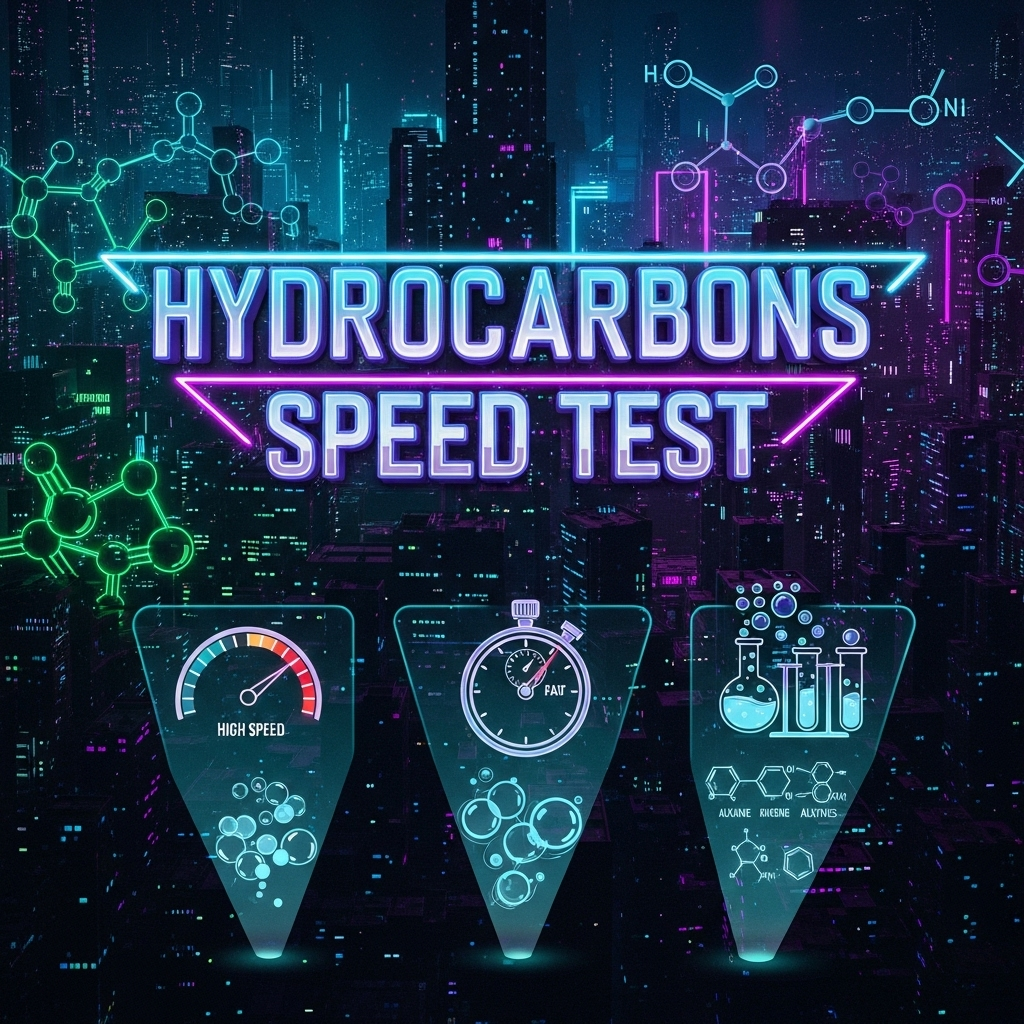Hydrocarbons – Interactive Quiz & Cheatsheet
Learn the properties, preparation, and reactions of alkanes, alkenes, and alkynes with this interactive tool
Updated: 5 months ago
Categories: Mini Game, Chemistry, Class 11, Organic Chemistry

Hydrocarbons Cheatsheet
Cheat Codes & Shortcuts
- Definition: Hydrocarbons are organic compounds composed solely of carbon and hydrogen atoms.
- Classification: Divided into Saturated (alkanes), Unsaturated (alkenes, alkynes), and Aromatic hydrocarbons.
- General Formula (Alkanes): \( C_nH_{2n+2} \)
- Alkene Formula: \( C_nH_{2n} \) — contain at least one double bond.
- Alkyne Formula: \( C_nH_{2n-2} \) — contain at least one triple bond.
- Aromatic Hydrocarbons: Have benzene rings with delocalized π-electrons.
- Isomerism: Structural isomers differ in connectivity; cis-trans isomers in alkenes differ in spatial arrangement.
- Naming: Follow IUPAC rules based on longest carbon chain and substituents.
- Combustion: Hydrocarbons combust in oxygen producing CO2 and H2O.
- Reaction Types: Substitution (alkanes), addition (alkenes/alkynes), and polymerization.
Quick Reference Table
| Type | General Formula | Characteristic Reaction |
|---|---|---|
| Alkane (Saturated) | \( C_nH_{2n+2} \) | Substitution (e.g., combustion, halogenation) |
| Alkene (Unsaturated) | \( C_nH_{2n} \) | Addition (e.g., hydrogenation, halogenation) |
| Alkyne (Unsaturated) | \( C_nH_{2n-2} \) | Addition (e.g., hydrogenation, halogenation) |
| Aromatic | Benzene, \( C_6H_6 \) | Electrophilic substitution (e.g., nitration, sulfonation) |
Advice
Identify Type: Determine if saturated, unsaturated, or aromatic before deciding reaction mechanism.
Use Formulas: Use general formulas to check molecular formulas for hydrocarbons.
Isomers: Learn to distinguish structural and stereoisomers for better understanding of properties.
Reactions: Know when substitution vs addition reactions occur for different hydrocarbons.
Naming: Practice IUPAC rules for naming complex hydrocarbons confidently.
Hydrocarbons Quick Tips
- Alkanes: Generally unreactive but undergo substitution and combustion.
- Alkenes/Alkynes: More reactive; undergo addition reactions due to double/triple bonds.
- Aromatic Rings: Stability due to resonance; undergo electrophilic substitution.
- Isomerism: Remember cis-trans isomers occur only in alkenes with restricted rotation.
- Combustion: Complete combustion produces CO2 and H2O; incomplete leads to CO and soot.
Hydrocarbons Speed Quiz
Test your knowledge with 5 hydrocarbons questions! You have 30 seconds per question.
Question: 1/5
Time left: 30s
Quiz Complete!
Your Score: 0/5

Group Discussions
No forum posts available.


